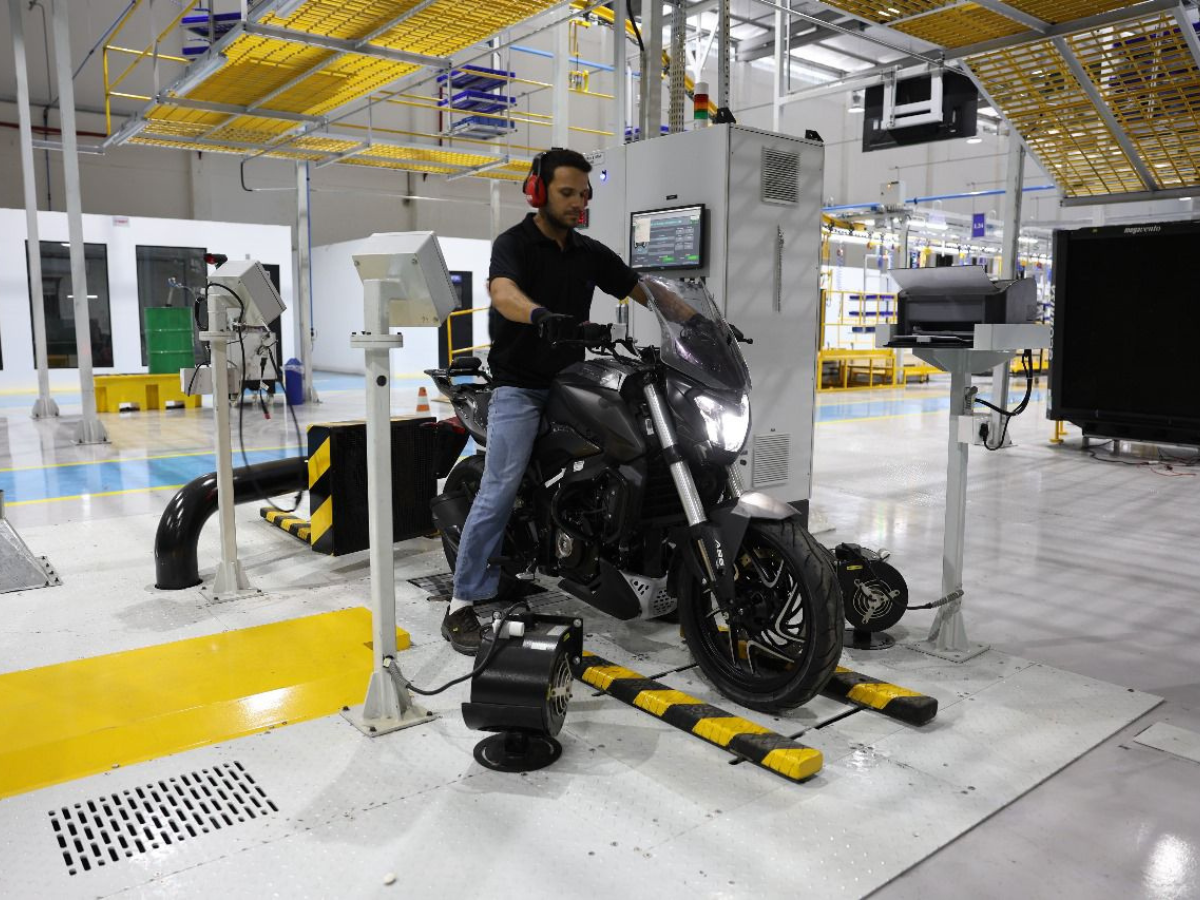The Bairro Tarumã-based factory with an area of 9600 square meters has a capacity to produce engine assembly, vehicle assembly, and testing facilities has a production capacity of 20,000 units per annum on a single shift. It can be expanded further in due course to accommodate additional production capacity to up to 50,000 units per year. Initially, the plant will focus on manufacturing Dominar models and later Pulsar models when they become available for introduction.
“With the establishment of our own plant in Brazil we have achieved a quantum shift in our local capability to fulfil demand. Our Dominar brand has received an outstanding reception since its launch 18 months ago. The new manufacturing capabilities will enable us to build a wider distribution network, introduce new products and meet growing expectations of our customers.” Rakesh Sharma, Executive Director of Bajaj Auto said in the statement.
In an earlier interaction with ET Sharma had noted that Brazil is an exception due to its size, complexity and sometimes unpredictability and requires a “longer-term staying power.” So, keeping these factors in mind, Bajaj decided that it was best to have a different business model and undertake the business development directly.
In addition to Bajaj models, the proposed Brazil facility will also produce the motorcycles of Austrian company KTM AG, in which Bajaj Auto has 48% stake, he said. Bajaj Auto also has a global alliance with UK-based motorcycle maker Triumph for co-developing middle-weight motorcycles. The latter already has a manufacturing presence in Brazil.
Its strategic location in Manaus leverages the substantial fiscal benefits offered by the State as well as proximity to supply chains and major transportation hubs, the company said. Latin America’s two-wheeler market reached 10.6 million units in 2022, according to market research firm IMARC Group. It has projected that the market will touch 23.7 million units by 2028, exhibiting a growth rate (CAGR) of 14.2% during 2023-2028.


